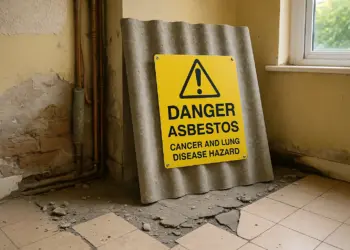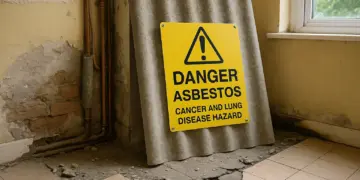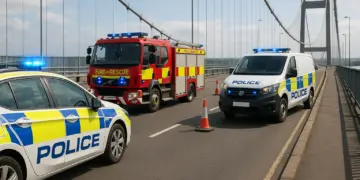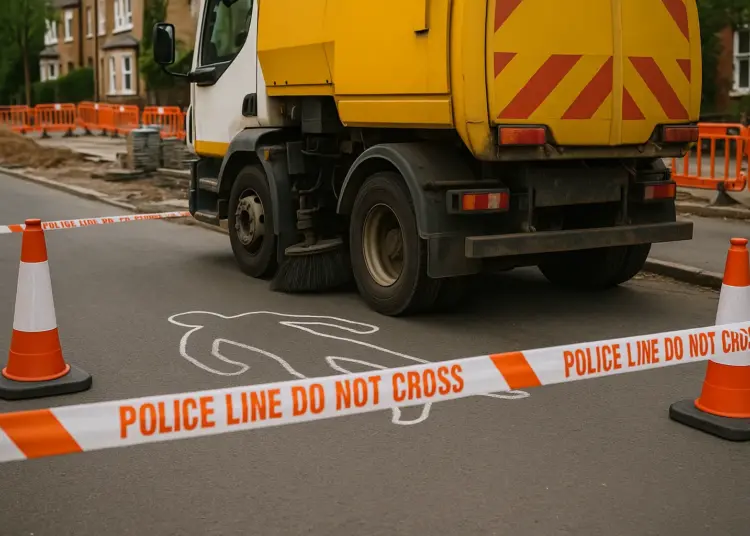Story Highlight
– Marlborough Highways fined £1m after worker’s death.
– Robert Morris, 48, struck by reversing road-sweeper.
– Inadequate safety measures identified during HSE investigation.
– Driver received suspended sentence for careless driving.
– Family describes Morris as “the centre of our world.”
Full Story
A construction company has been handed a substantial fine following the tragic death of an employee who was struck by a reversing road-sweeper. The company, Marlborough Highways Limited, is known for its work in road resurfacing across London, and has now been ordered to pay £1m after the incident involving Robert Morris, aged 48, on 30 May 2022.
Mr Morris was performing his duties on Pemberton Road in Haringey when he was hit by the vehicle, which was being operated by a colleague at the time. The incident prompted a thorough investigation led jointly by the Health and Safety Executive (HSE) and the Metropolitan Police. As part of this inquiry, evidence was referred to the Crown Prosecution Service (CPS), resulting in legal action against the driver, who ultimately received a suspended prison sentence.
The investigation by the HSE unveiled several critical safety lapses at the construction site. It was reported that there was a complete lack of segregation between pedestrians and moving vehicles, and a banksman—someone responsible for directing vehicle movements—was not in place to ensure safety while the road-sweeper was reversing. Furthermore, the traffic management protocols in operation at the site were deemed insufficient, exposing both employees and the public to potentially serious accidents.
Data from the HSE indicates that many accidents involving construction transport stem from poor segregation of pedestrians and vehicles. However, such incidents can usually be prevented through meticulous planning, especially during the design phase, combined with stringent supervision of vehicle activities on site. The HSE has published guidance on safe vehicle operations on construction sites, underlining the importance of ensuring that areas occupied by workers and vehicles are clearly defined.
Marlborough Highways Limited, located at Woolf House, Eagle Way, Chelmsford, accepted responsibility for the incident and pleaded guilty to breaches of Sections 2(1) and 3(1) of the Health and Safety at Work etc. Act 1974 at the earliest opportunity. The company faced subsequent penalties, with a fine of £1 million announced alongside legal costs amounting to £6,028, assessed by the City of London Magistrates’ Court on 3 October 2025.
In a related case, Jamie Smith, a 46-year-old employee from Essex who was driving the road-sweeper, was charged with causing death by careless driving, a violation of section 2B of the Road Traffic Act 1988. He entered a guilty plea, and in February 2024 was sentenced to six months in prison, suspended for two years, along with a one-year driving ban.
HSE principal inspector James Goldfinch expressed condolences to Mr Morris’s family, highlighting the profound impact of the incident. His widow described her husband as “the centre of our world,” adding that their children feel “sad, angry and cheated of so much of their future.” Goldfinch emphasised that every worker has the right to return home safely at the end of their shift, stating, “The lack of segregation of vehicles and pedestrians by Marlborough Highways Limited meant he did not.” He further remarked that adequate safety controls had been identified but were evidently not enforced on the premises.
The case, managed by HSE’s Enforcement Lawyer Samantha Wells and Paralegal Melissa Wardle, underscores the ongoing need for rigorous safety standards within the construction industry. The HSE remains Britain’s primary regulator for workplace health and safety, committed to ensuring that workplaces are safe for all employees.
In light of this incident, the importance of adhering to established health and safety guidelines cannot be overstated. The ongoing dissemination of information and resources by the HSE aims to enhance safety practices across the sector.























This is a devastating reminder that basic safety controls must never be treated as optional. Segregation of vehicles and pedestrians, clear reversing procedures, effective supervision and proper risk assessments are fundamental on any site. Companies must ensure safe systems of work are implemented, that equipment is correctly marshalled and that all staff receive the training and support needed to follow those systems. Serious lessons must be learned to prevent another family suffering this loss.
This is a devastating reminder that basic site safety cannot be optional. Allowing vehicles and pedestrians to mix without clear segregation and controls is a predictable route to tragedy. Employers must carry out robust risk assessments, implement physical segregation or supervised pedestrian routes, ensure competent site supervision and safe systems of work, and provide effective vehicle management including banksmen, reversing alarms and clear sightlines. Accountability through enforcement is important, but prevention comes from strong leadership, active supervision and a safety culture that puts people first. My condolences to the family.